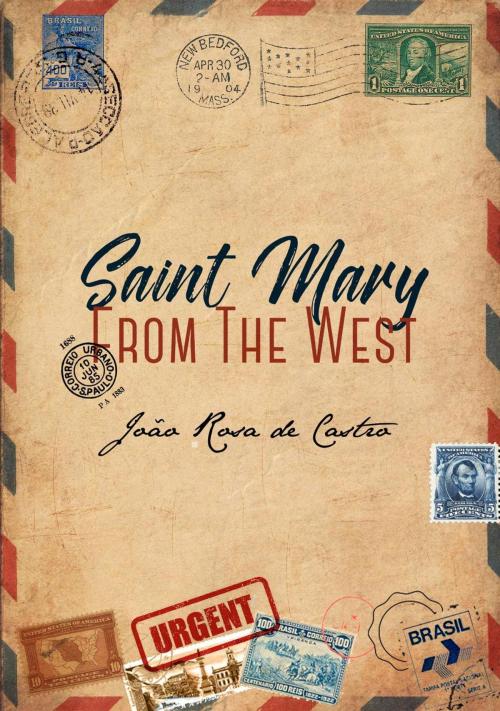| Author: | João Rosa de Castro | ISBN: | 9781507165676 |
| Publisher: | Babelcube Inc. | Publication: | December 16, 2016 |
| Imprint: | Language: | English |
| Author: | João Rosa de Castro |
| ISBN: | 9781507165676 |
| Publisher: | Babelcube Inc. |
| Publication: | December 16, 2016 |
| Imprint: | |
| Language: | English |
Even not having a “deceased author”, like in The Posthumous Memoirs of Brás Cubas, Saint Mary From The West develops, with much talent, the elements of the great novel by Machado de Assis, by placing them in a contemporary living that invites the reader to follow the reflections of a narrator character that addresses many themes, references and situations lived by him. Placed before what he calls a “loom of the soul”, he recalls lectures and lecturers of the Philosophical Café of TV Cultura, Nietzsche, Comte, Coldplay, Oswaldo Montenegro, almost always heading to Saint Mary, who shelters his anxieties. Actually, what the narrator character calls “scribbling” is intended to defy the reader to run the paths of his consciousness.
Exactly for being defying, such paths are not easy, because they are not revealed in a transparent manner. The reader is faced with the “scribbling” of a cultured man, whose eloquence builds a mosaic of themes and thoughts that give shape to his soul in this loom. Little narratives, reflexions on love, homosexuality, Brazilian music, amongst other things, give the reader an impression of persuasion and, at the same time, stimulates him or her to go beyond to explore something latent in the middle of the diversity that he brings.
The high power of persuasion of this narrator character gives the impression of a powerful man, master of himself. However, what his erudition allows us foreseeing along the reading is exactly a fragile man, who has in his eloquence a home, a protection, a resistance. This “exquisite” fragility has to do with the conditions of the contemporary “man of letters”, who, far from occupying a privileged place, sees himself regardless, not only financially, but also culturally. A humanistic look that shocks with the work market, with the prejudices, with the mass culture, and that, as a result of this shock, turns towards the within, from where he allows us forecasting, behind his eloquence, a cathartic self-mockery – for the narrator character and for the readers who identify themselves with him.
Even not having a “deceased author”, like in The Posthumous Memoirs of Brás Cubas, Saint Mary From The West develops, with much talent, the elements of the great novel by Machado de Assis, by placing them in a contemporary living that invites the reader to follow the reflections of a narrator character that addresses many themes, references and situations lived by him. Placed before what he calls a “loom of the soul”, he recalls lectures and lecturers of the Philosophical Café of TV Cultura, Nietzsche, Comte, Coldplay, Oswaldo Montenegro, almost always heading to Saint Mary, who shelters his anxieties. Actually, what the narrator character calls “scribbling” is intended to defy the reader to run the paths of his consciousness.
Exactly for being defying, such paths are not easy, because they are not revealed in a transparent manner. The reader is faced with the “scribbling” of a cultured man, whose eloquence builds a mosaic of themes and thoughts that give shape to his soul in this loom. Little narratives, reflexions on love, homosexuality, Brazilian music, amongst other things, give the reader an impression of persuasion and, at the same time, stimulates him or her to go beyond to explore something latent in the middle of the diversity that he brings.
The high power of persuasion of this narrator character gives the impression of a powerful man, master of himself. However, what his erudition allows us foreseeing along the reading is exactly a fragile man, who has in his eloquence a home, a protection, a resistance. This “exquisite” fragility has to do with the conditions of the contemporary “man of letters”, who, far from occupying a privileged place, sees himself regardless, not only financially, but also culturally. A humanistic look that shocks with the work market, with the prejudices, with the mass culture, and that, as a result of this shock, turns towards the within, from where he allows us forecasting, behind his eloquence, a cathartic self-mockery – for the narrator character and for the readers who identify themselves with him.















